Partnership with CERES TAG to enhance data collection The Department...
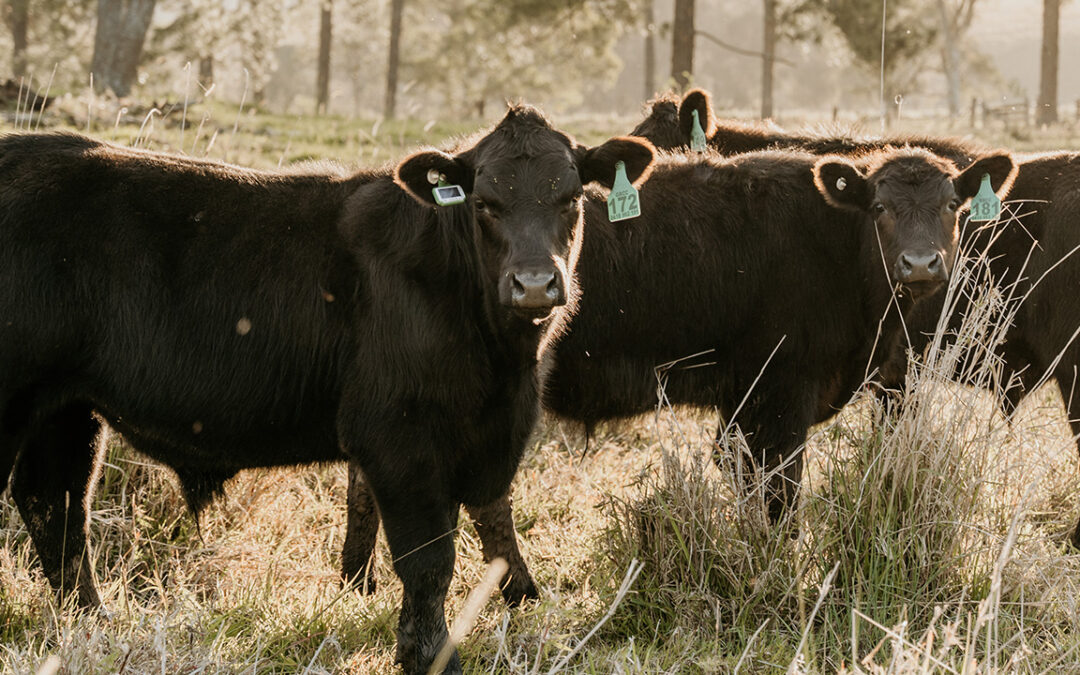

Partnership with CERES TAG to enhance data collection The Department...
The annual U.S. Beekeeping Survey results are in for the 2024-2025 calendar year. In collaboration with Auburn University, the Apiary Inspectors of America, Oregon State University and others, the national survey estimated that 55.6% of managed honey bee colonies were...
Cotton is undoubtedly one of the most recognizable plants in the world, with its heart-shaped leaves and branches that explode into powder-white fruit. But it’s also one of the more understudied field crops. “Previously, it was unclear where and which specific...

Following a national search, Mykel Taylor was named head of the Auburn University Department of Agricultural Economics and Rural Sociology, effective April 15. She had...
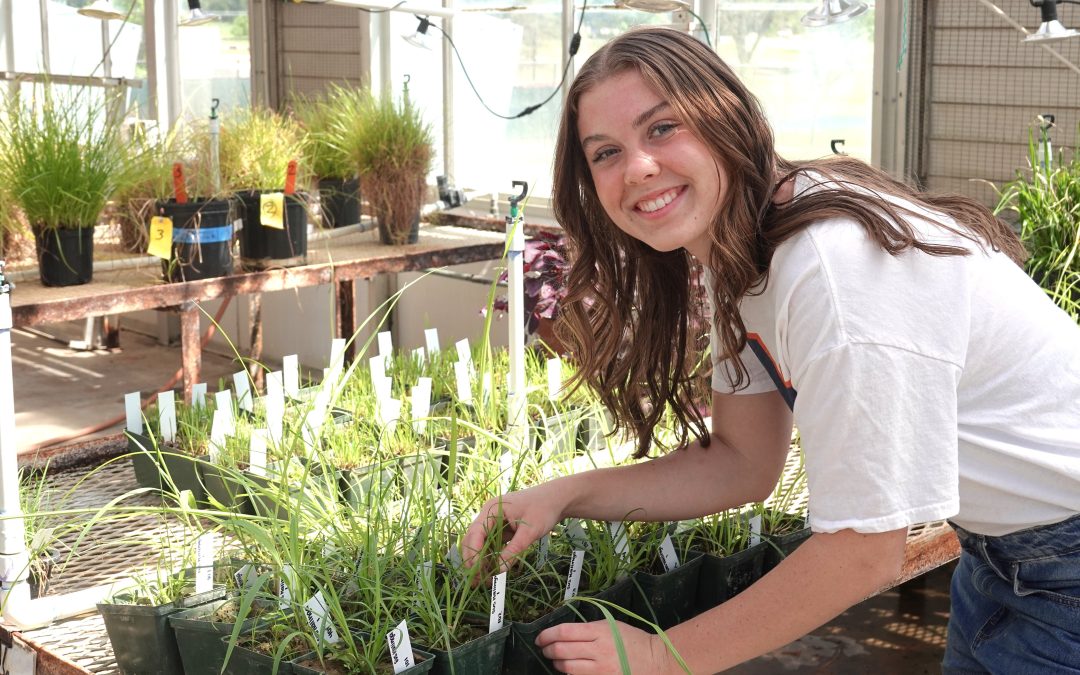
Auburn University College of Agriculture student Leah Johnson received a highly competitive collegiate internship with HudsonAlpha, a premier institute for...
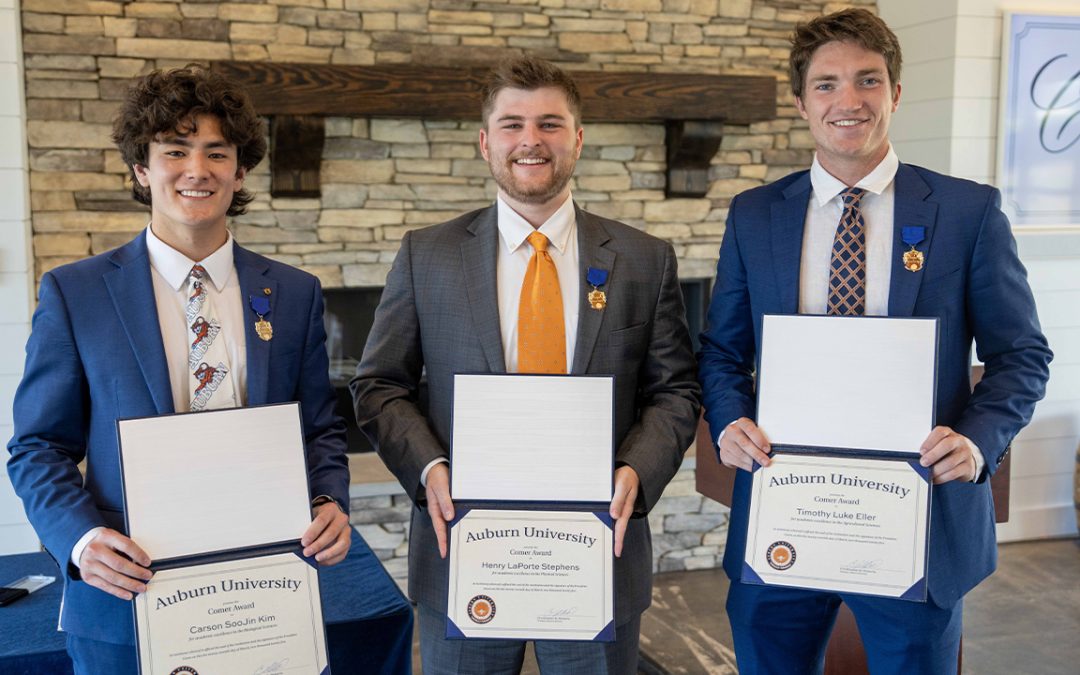
Hosted by the College of Sciences and Mathematics, in collaboration with the College of Agriculture, this year’s Comer Awards were presented to three graduating Auburn University students….
John Canfield is a Ph.D. student in the Sociology program at the University of Wisconsin-Madison. In 2019, he received his M.S. in Rural Sociology at Auburn University, where his research focused on the financialization of farmland in rural Illinois. His advisor was...
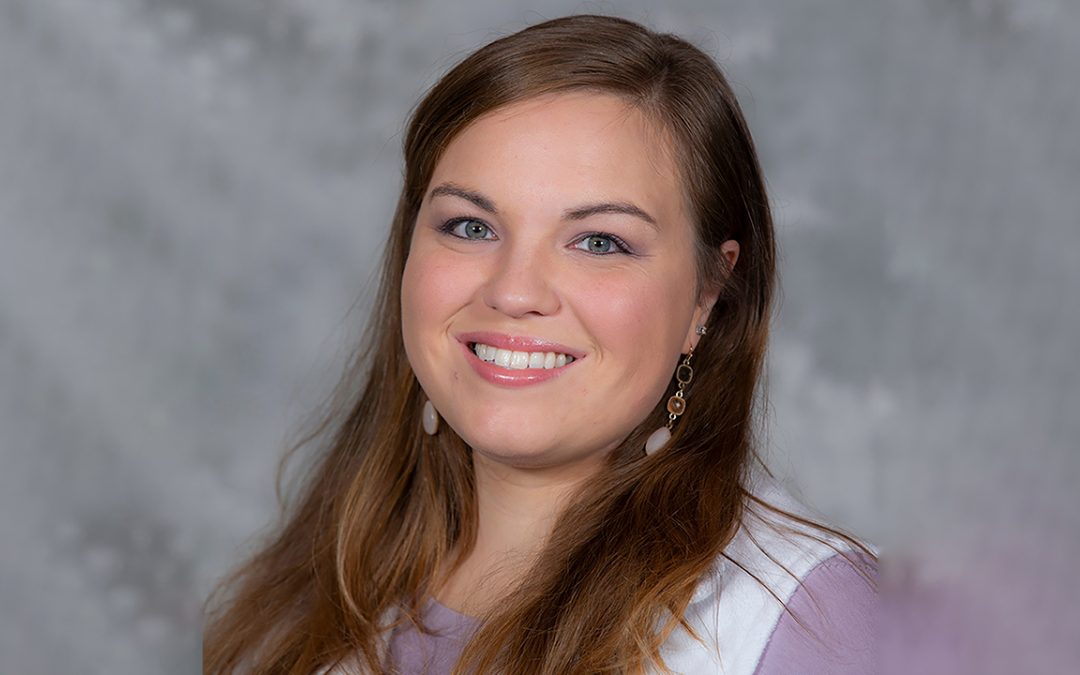
Jennie Hargrove is a Youth Program Specialist with the Iowa 4-H Youth Development Program. In her role, she provides program, volunteer, and professional supports to seven county 4-H programs in south central Iowa. Jennie completed her B.S. in Family and Consumer...
The National Academy of Inventors, or NAI, has named Joseph Kloepper, Alumni Professor of plant pathology in Auburn’s College of Agriculture, as one of its 2018 fellows. The 2018 fellows represent 125 research universities and governmental and nonprofit research...
Nineteen Auburn College of Agriculture and Alabama Agricultural Experiment Station faculty who collectively secured more than $11.8 million in research funding in the past fiscal year were among the 32 honorees in the college’s 2018 faculty and staff awards program in...
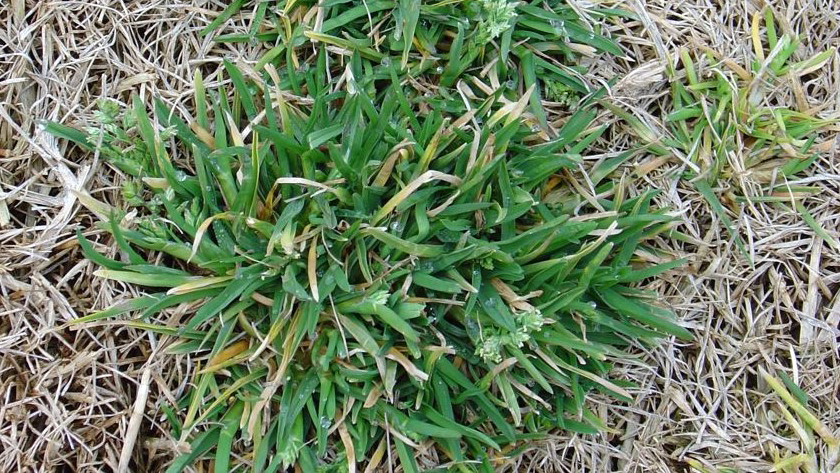
A team of university scientists from across the U.S. is waging a nationwide offensive against a dastardly weed that the turfgrass industry in Alabama and beyond deems Enemy No. 1.
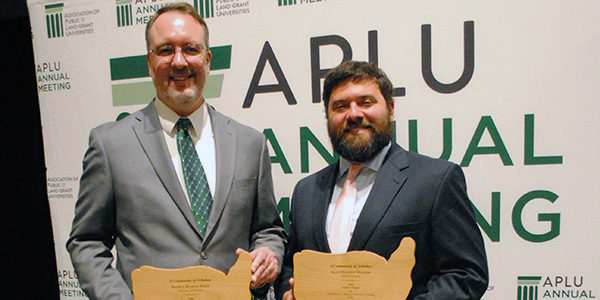
An Auburn University associate professor and a department chair soon to join the Auburn family were honored in November by the USDA’s Association of Public and Land-grant Universities’ annual meeting in New Orleans.
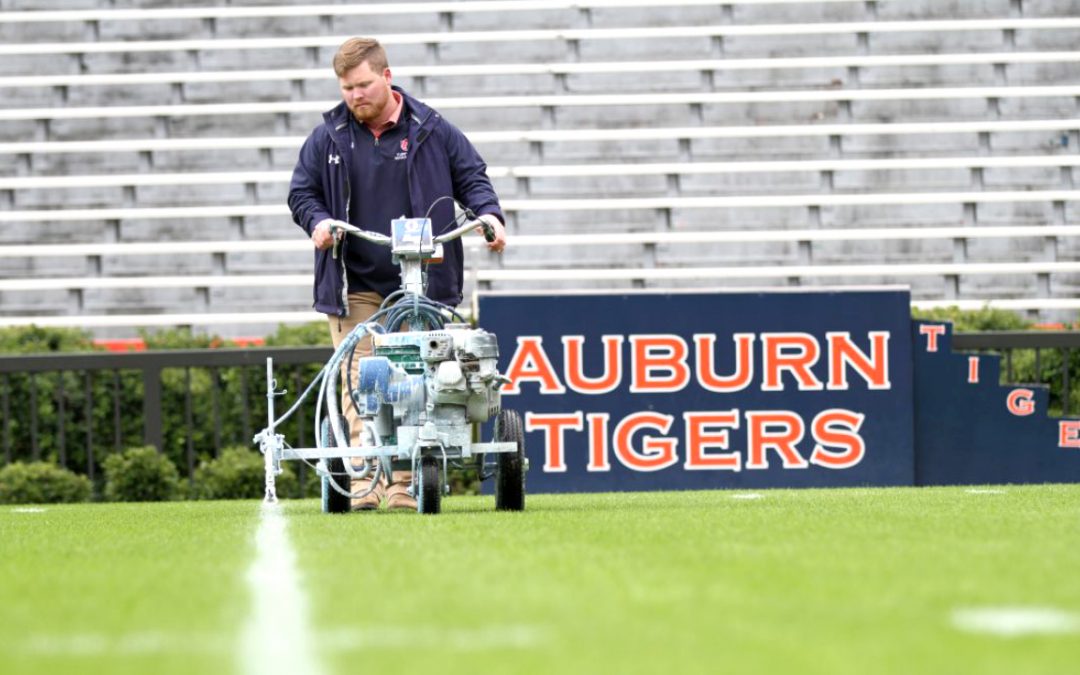
2019 already is shaping up to be a super year for Wilson Morgan — a super year that starts with a trip to the Super Bowl.
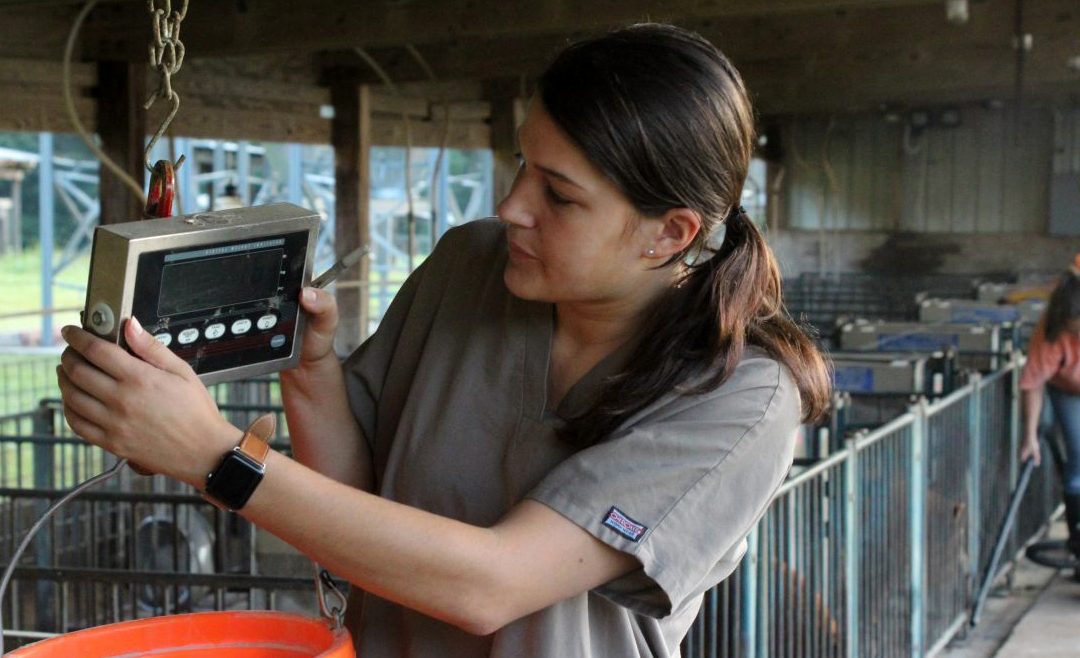
The hum of wet/dry vacuums mingles with pig grunts and squeals as Auburn University animal sciences pre-veterinarian junior Maegan Reeves approaches the pen of a curly-haired Mangalitsa pig and sticks a vacuum hose into the feed trough.
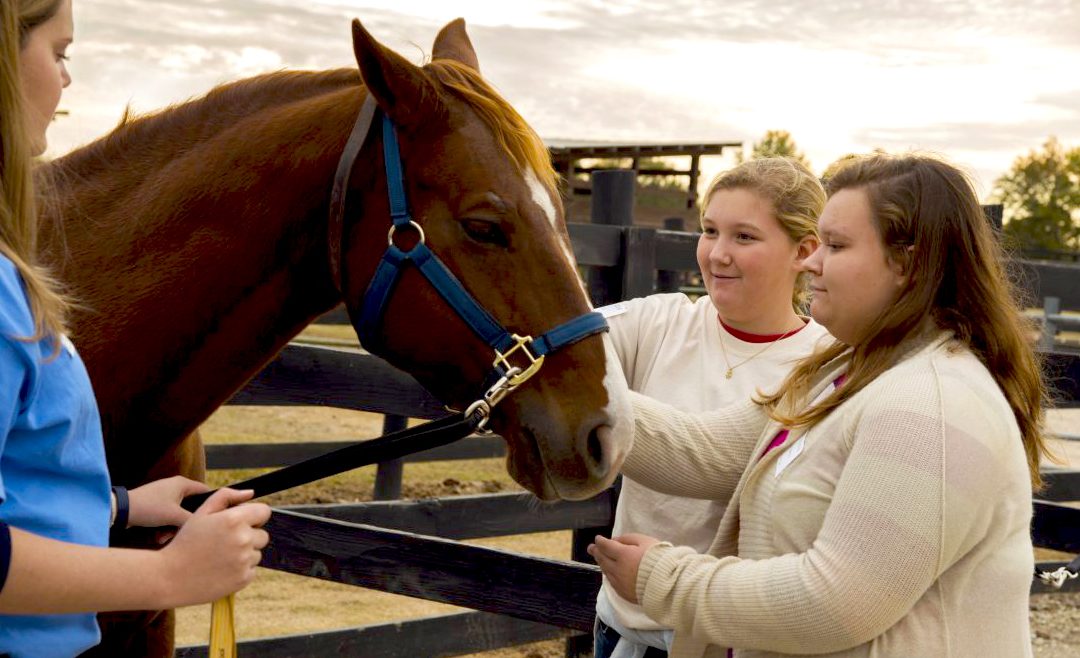
Auburn University’s College of Agriculture and College of Veterinary Medicine are offering two educational programs for horse enthusiasts Saturday, Dec. 1, 2018.
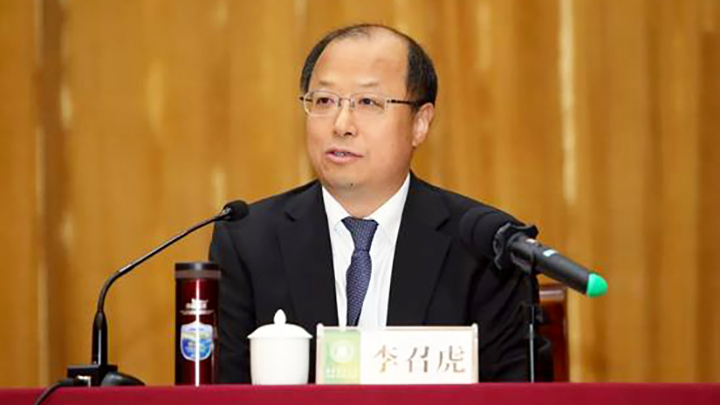
Zhaohu Li, an Auburn University College of Agriculture alumnus, has been named president of Huazhong Agricultural University, one of the top agricultural universities in China. The institution is located in Wuhan, the capital of Hubei province.
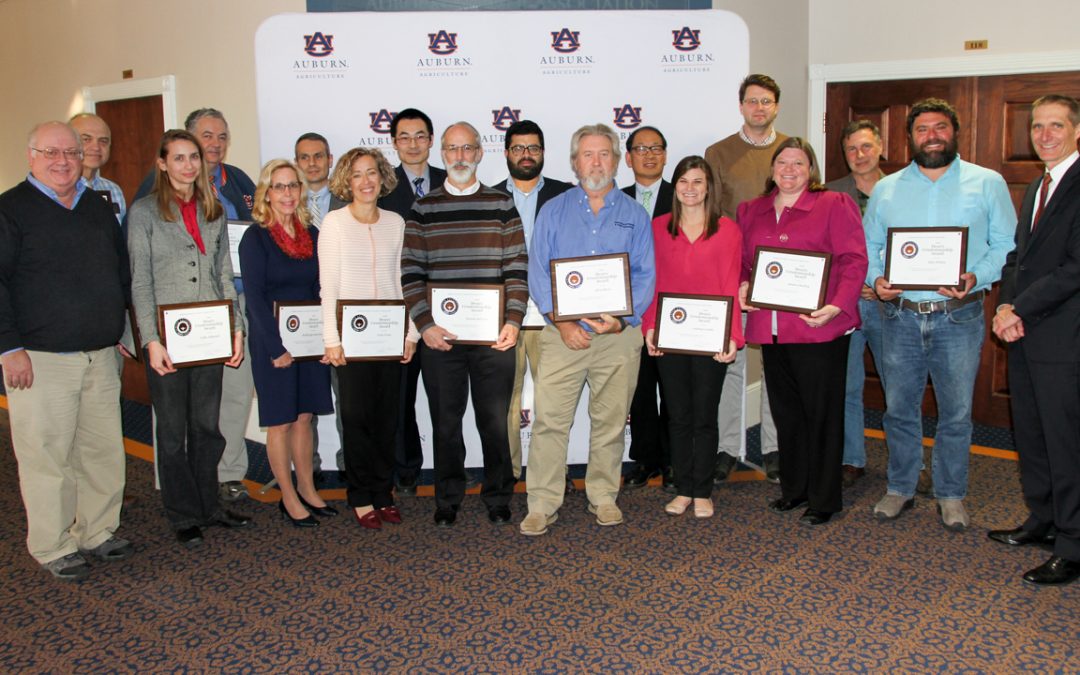
Both professors in the College of Agriculture’s School of Fisheries, Aquaculture and Aquatic Sciences, are among the Auburn University faculty members campuswide who have received prestigious honors as part of Auburn’s 2018 Faculty Awards program.
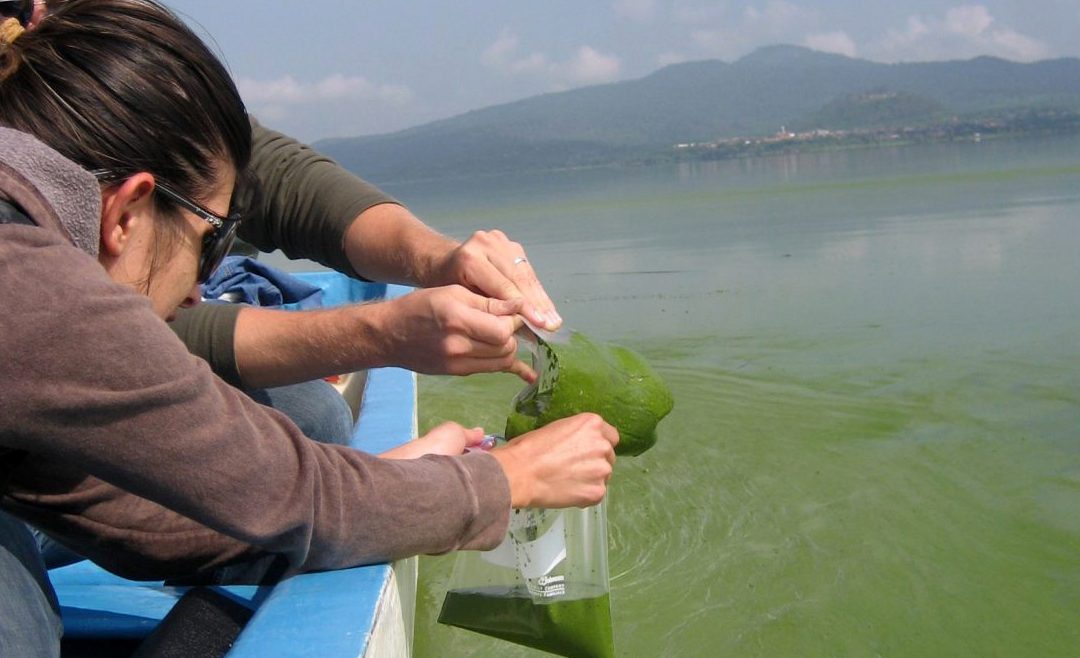
Auburn University aquatic ecologist Alan Wilson and a team of biological, molecular and environmental scientists from three other U.S. institutions are taking on toxic cyanobacteria, also called blue-green algae or pond scum, in a five-year, $2 million National Science Foundation project.
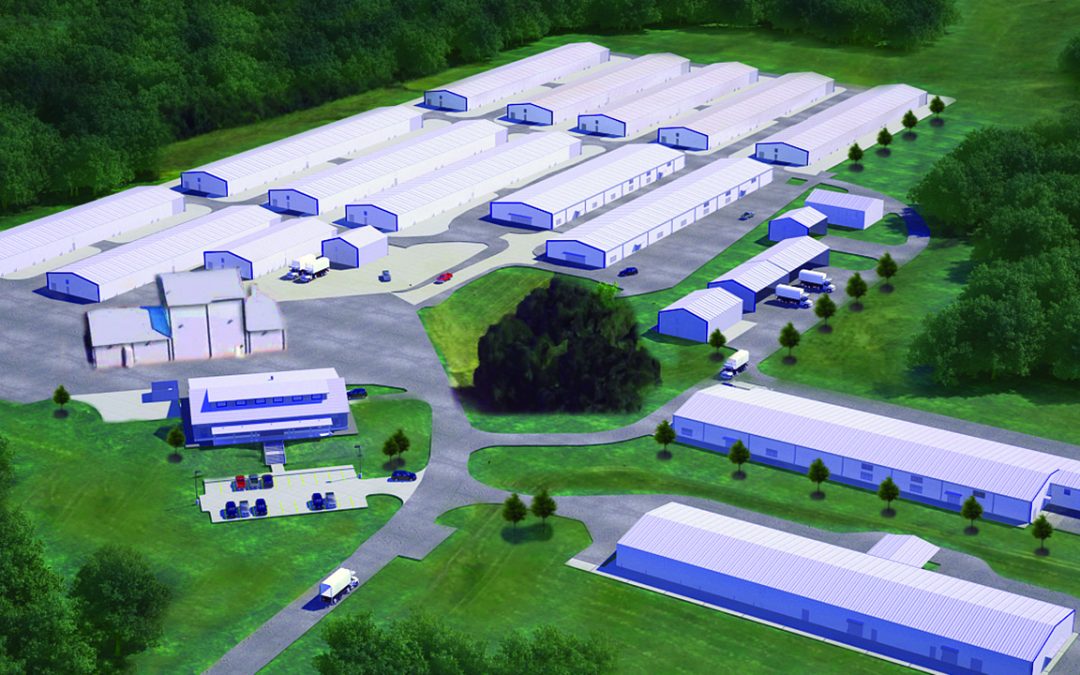
Auburn University’s Board of Trustees has cleared the way for completion of the multi-unit Charles C. Miller Jr. Poultry Research and Education Center on the north Auburn campus, beginning with construction of an 18,800-square-foot poultry processing plant on the 30-acre site.
The project will create a bio-based fuel additive that can be blended with diesel fuel to reduce soot and greenhouse gas emissions and yield cleaner engine operation in cold-weather conditions.
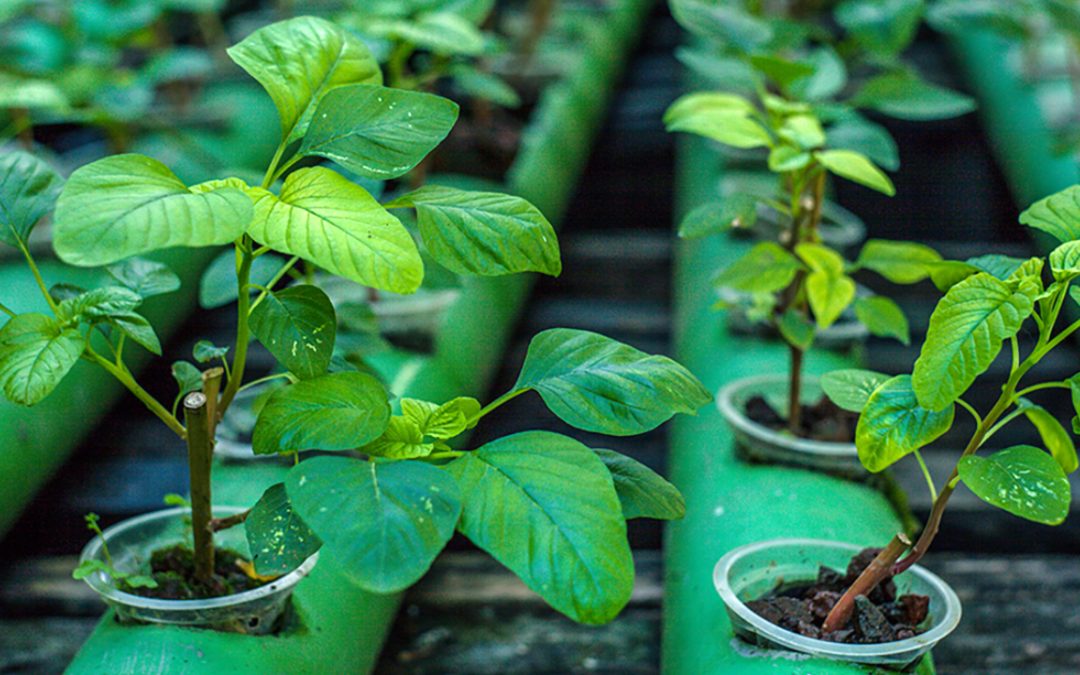
Auburn University’s School of Fisheries, Aquaculture and Aquatic Sciences and Fisheries Business Institute will host a commercial aquaponics workshop
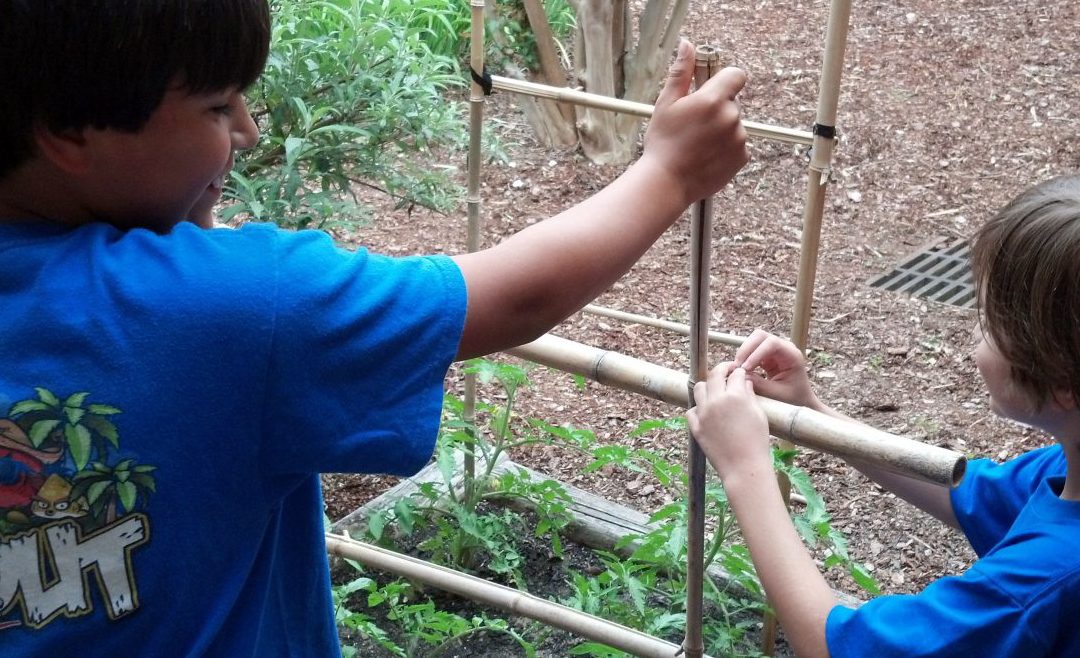
The College of Agriculture’s Department of Horticulture is giving back to the community by helping educate Opelika elementary students on gardening practices and at the same time addressing food insecurity in impoverished Opelika communities.
Joshua Duke, currently professor of applied economics and statistics at the University of Delaware, will join the Auburn University College of Agriculture on March 1, 2019, as Department of Agricultural Economics and Rural Sociology chair and professor. College of...
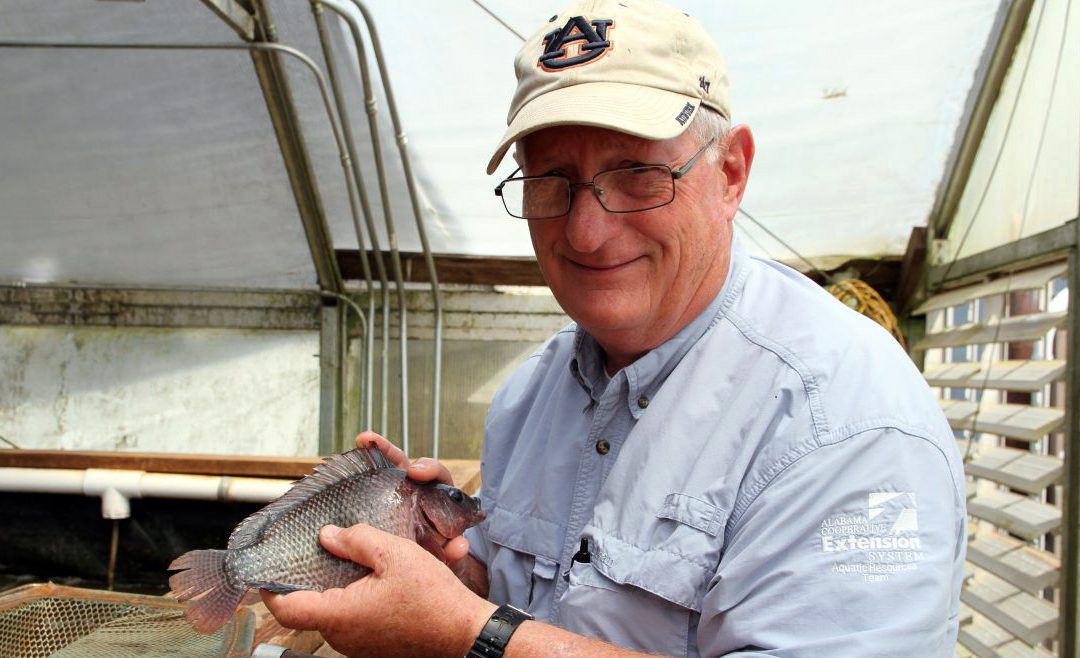
Auburn University’s Aquaponics Working Group has a new vision for U.S. aquaculture, one that includes far more predictability and efficiency than today’s timeworn models of commercial fish production.
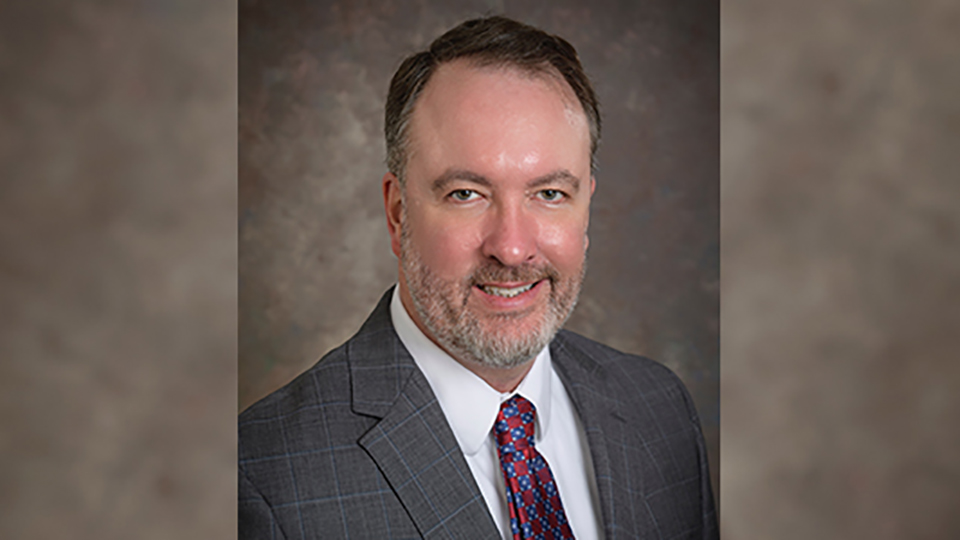
Joshua Duke, currently professor of applied economics and statistics at the University of Delaware, will join the Auburn University College of Agriculture on March 1, 2019, as the Department of Agricultural Economics and Rural Sociology chair and professor.
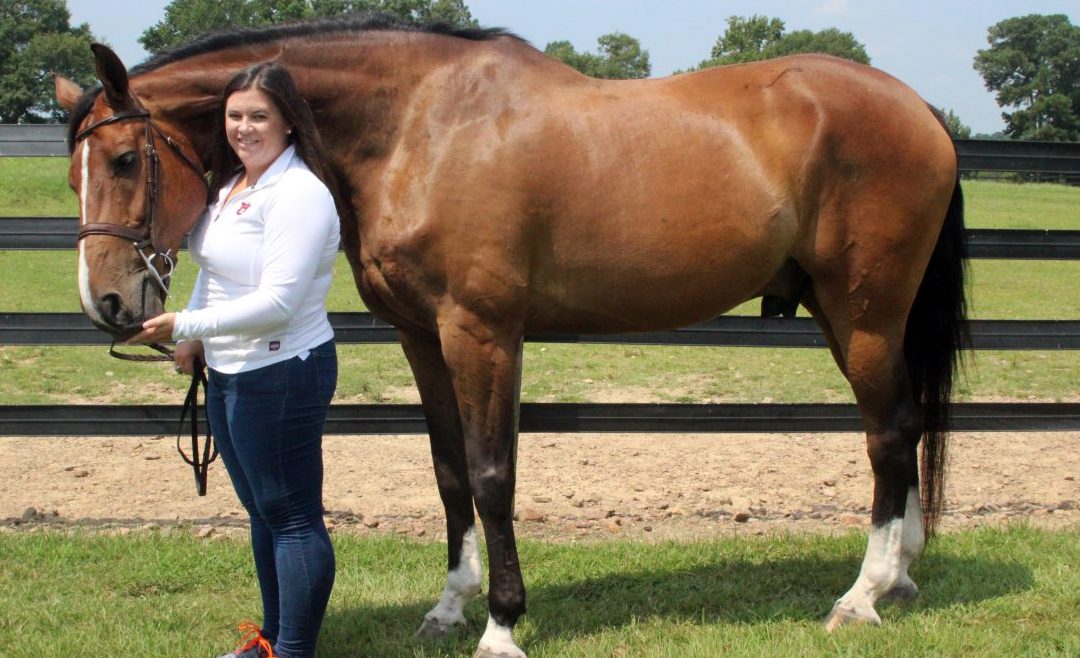
Ask Auburn Equestrian head coach Greg Williams what makes Jessica Braswell such a special associate head coach, and he has one answer: Passion.
Mahnaz Kargar, a Department of Horticulture doctoral candidate working under the direction of professor Floyd Woods, won a second-place U.P. Hedrick Award during competition held as part of the American Pomological Society’s 2018 annual meeting in Washington, D.C.
John Canfield is a Ph.D. student in the Sociology program at the University of Wisconsin-Madison. In 2019, he received his M.S. in Rural Sociology at Auburn University, where his research focused on the financialization of farmland in rural Illinois. His advisor was...

Jennie Hargrove is a Youth Program Specialist with the Iowa 4-H Youth Development Program. In her role, she provides program, volunteer, and professional supports to seven county 4-H programs in south central Iowa. Jennie completed her B.S. in Family and Consumer...
The National Academy of Inventors, or NAI, has named Joseph Kloepper, Alumni Professor of plant pathology in Auburn’s College of Agriculture, as one of its 2018 fellows. The 2018 fellows represent 125 research universities and governmental and nonprofit research...
Nineteen Auburn College of Agriculture and Alabama Agricultural Experiment Station faculty who collectively secured more than $11.8 million in research funding in the past fiscal year were among the 32 honorees in the college’s 2018 faculty and staff awards program in...

A team of university scientists from across the U.S. is waging a nationwide offensive against a dastardly weed that the turfgrass industry in Alabama and beyond deems Enemy No. 1.

An Auburn University associate professor and a department chair soon to join the Auburn family were honored in November by the USDA’s Association of Public and Land-grant Universities’ annual meeting in New Orleans.

2019 already is shaping up to be a super year for Wilson Morgan — a super year that starts with a trip to the Super Bowl.

The hum of wet/dry vacuums mingles with pig grunts and squeals as Auburn University animal sciences pre-veterinarian junior Maegan Reeves approaches the pen of a curly-haired Mangalitsa pig and sticks a vacuum hose into the feed trough.

Auburn University’s College of Agriculture and College of Veterinary Medicine are offering two educational programs for horse enthusiasts Saturday, Dec. 1, 2018.

Zhaohu Li, an Auburn University College of Agriculture alumnus, has been named president of Huazhong Agricultural University, one of the top agricultural universities in China. The institution is located in Wuhan, the capital of Hubei province.

Both professors in the College of Agriculture’s School of Fisheries, Aquaculture and Aquatic Sciences, are among the Auburn University faculty members campuswide who have received prestigious honors as part of Auburn’s 2018 Faculty Awards program.

Auburn University aquatic ecologist Alan Wilson and a team of biological, molecular and environmental scientists from three other U.S. institutions are taking on toxic cyanobacteria, also called blue-green algae or pond scum, in a five-year, $2 million National Science Foundation project.

Auburn University’s Board of Trustees has cleared the way for completion of the multi-unit Charles C. Miller Jr. Poultry Research and Education Center on the north Auburn campus, beginning with construction of an 18,800-square-foot poultry processing plant on the 30-acre site.
The project will create a bio-based fuel additive that can be blended with diesel fuel to reduce soot and greenhouse gas emissions and yield cleaner engine operation in cold-weather conditions.

Auburn University’s School of Fisheries, Aquaculture and Aquatic Sciences and Fisheries Business Institute will host a commercial aquaponics workshop

The College of Agriculture’s Department of Horticulture is giving back to the community by helping educate Opelika elementary students on gardening practices and at the same time addressing food insecurity in impoverished Opelika communities.
Joshua Duke, currently professor of applied economics and statistics at the University of Delaware, will join the Auburn University College of Agriculture on March 1, 2019, as Department of Agricultural Economics and Rural Sociology chair and professor. College of...

Auburn University’s Aquaponics Working Group has a new vision for U.S. aquaculture, one that includes far more predictability and efficiency than today’s timeworn models of commercial fish production.

Joshua Duke, currently professor of applied economics and statistics at the University of Delaware, will join the Auburn University College of Agriculture on March 1, 2019, as the Department of Agricultural Economics and Rural Sociology chair and professor.

Ask Auburn Equestrian head coach Greg Williams what makes Jessica Braswell such a special associate head coach, and he has one answer: Passion.
Mahnaz Kargar, a Department of Horticulture doctoral candidate working under the direction of professor Floyd Woods, won a second-place U.P. Hedrick Award during competition held as part of the American Pomological Society’s 2018 annual meeting in Washington, D.C.